- Home
- Margaret Pemberton
The Four of Us
The Four of Us Read online
Bello:
hidden talent rediscovered
Bello is a digital only imprint of Pan Macmillan, established to breathe life into previously published classic books.
At Bello we believe in the timeless power of the imagination, of good story, narrative and entertainment and we want to use digital technology to ensure that many more readers can enjoy these books into the future.
We publish in ebook and Print on Demand formats to bring these wonderful books to new audiences.
About Bello:
www.panmacmillan.com/bello
Sign up to our newsletter to hear about new releases events and competitions:
www.panmacmillan.com/bellonews
Contents
Margaret Pemberton
Dedication
Part One
Chapter One
Chapter Two
Chapter Three
Chapter Four
Chapter Five
Chapter Six
Chapter Seven
Chapter Eight
Chapter Nine
Chapter Ten
Chapter Eleven
Chapter Twelve
Chapter Thirteen
Chapter Fourteen
Chapter Fifteen
Chapter Sixteen
Chapter Seventeen
Chapter Eighteen
Chapter Nineteen
Part Two
Chapter Twenty
Chapter Twenty-One
Chapter Twenty-Two
Chapter Twenty-Three
Chapter Twenty-Four
Chapter Twenty-Five
Chapter Twenty-Six
Chapter Twenty-Seven
Chapter Twenty-Eight
Chapter Twenty-Nine
Chapter Thirty
Chapter Thirty-One
Chapter Thirty-Two
Margaret Pemberton
The Four of Us
Margaret Pemberton
Margaret Pemberton is the bestselling author of over thirty novels in many different genres, some of which are contemporary in setting and some historical.
She has served as Chairman of the Romantic Novelists’ Association and has three times served as a committee member of the Crime Writers’Association. Born in Bradford, she is married to a Londoner, has five children and two dogs and lives in Whitstable, Kent. Apart from writing, her passions are tango, travel, English history and the English countryside.
Dedication
The Four of Us is about friendship and is dedicated to:
Linda Britter – a lifetime friend whose help and advice on all things literary is much valued.
Kathleen Smith – a childhood friend regained through Friends Reunited.
June Hanchard – a friend who has taught hundreds to dance –
even me.
Christine Morris – a friend who made life such fun in the ’60s and makes it fun still.
And last, but by no means least, for Mike – who in over thirty
years of marriage has been the best friend any woman could have.
Part One
Chapter One
April 2003
Seated in the elegant reception area of Marcus Black & Company, Solicitors, Primmie Dove’s fingers tightened on the strap of her shabby handbag. She was fifty years old and her only previous experience of solicitors was when her much-loved husband, Ted, had died. That had been three years ago and her sense of loss was still raw.
She took a deep, steadying breath. Now was not the time to be thinking of Ted. All her attention needed to be focused on the letter in her handbag.
Dear Madam, it read. I would appreciate it if you would contact me with regard to the estate of Mrs Amelia Surtees, the widow of your father’s brother, Gordon Surtees. Yours faithfully, Marcus Black.
Had the childless Amelia, who had exchanged her council house in Redhill for one in Cornwall at about the time of Ted’s death, left her a small amount of money? It was the conclusion her twenty-two-year-old daughter, Millie, had come to, but then Millie was ever hopeful where money was concerned. Joanne, thirteen months older than Millie and an office manager at D. P. International, a Mayfair advertising agency, had been more prosaic.
‘You’re probably going to be asked to deal with some kind of paperwork. Remember when Dad died? Even though the amount of money he left was negligible, there was still paperwork to deal with.’
She hadn’t been able to speak about the letter to her youngest daughter, Lucy, who was back-packing somewhere in Australia and her son, Josh, who never travelled out of London if he could help it, had been equally impossible to contact.
‘Mr Black will see you now,’ the woman at the reception desk said, breaking in on her thoughts.
She rose to her feet, fighting down a sudden, irrational feeling of apprehension, and entered the adjoining room.
‘Thank you very much for being able to see me so promptly, Mrs Dove,’ Marcus Black said, beaming genially. ‘And my condolences on your aunt’s death.’
‘Thank you.’ After shaking hands with him and seating herself on the chair at the far side of his desk, she said, not wanting to mislead him in any way, ‘We weren’t close. I used to visit her once or twice a year when she lived near London, but since her move to Cornwall we’ve had no contact apart from exchanging cards at Christmas.’
‘Really? Now that does surprise me.’ Once more seated behind his desk, he looked down at the slim file that lay open in front of him. ‘I’d assumed you were close, but of course, as she had no other relatives and certainly no blood relatives …’ He leafed through a couple of pages of close print.
‘Has she asked that I be her executor?’
‘Executor?’ He looked up at her, startled. ‘No, indeed. We – Marcus Black & Company – are her executors.’ He removed a typed sheet from the file. ‘This is a copy of Amelia Surtees’s estate accounts, for your own records, but if you will bear with me, I would like to go through it with you, item by item.’ He cleared his throat and donned a pair of horn-rimmed glasses. ‘Assets at date of death, twenty-nine thousand, one hundred and ninety pounds.’
Primmie gasped.
‘Balance at National Westminster Bank, eight thousand seven hundred and forty pounds forty-nine pence. Balance in Abbey National Building Society share account, twenty thousand four hundred and seventy-eight pounds. Jewellery sold, four hundred and two pounds. And now for the debit side of the estate, which is payment of funeral expenses, fee for copy of death certificate, the administrator’s expenses, my own costs for the winding up of the estate …’
Vainly Primmie tried to keep a mental running total of how much was still left, but maths had never been her strong point.
‘And now to the residuary estate of twenty-four thousand five hundred and thirty pounds,’ Marcus Black said, ‘divisible in equal parts between the following six charities: The Sunshine Children’s Home, Birmingham; The Children’s Country Holidays Fund; Save the Children Fund; The Seal Sanctuary, Gweek; Redwings Horse Sanctuary, Norfolk; Foal Farm Animal Rescue Centre, Kent.’
He clasped his hands on top of the sheet of paper he had been reading from and looked up at her. ‘Now, Mrs Dove. Is that all understandable?’
Primmie nodded, understanding all too well that she wasn’t one of the beneficiaries. As she had never expected to be coming into money, the disappointment wasn’t too great, but just for a few minutes, when Marcus Black had announced the surprising amount of her aunt’s assets, that she might have been left something had suddenly seemed a possibility.
‘And now,’ he said, ‘we come to your aunt’s largest asset. The property she was living in at the time of her death.’
Primmie blinked. ‘I’m sorry. I don’t understand. My aunt didn’t own
property. She had a council house at Redhill, which she exchanged for a council house in Cornwall.’
Marcus Black cocked his head to one side and said, ‘Your information is a little at fault, Mrs Dove. True, your aunt-by-marriage had a council home in Redhill. This she vacated in March 1997 when she inherited her father’s property – the property she was living in at the time of her death. This property – and its contents – she has bequeathed to you, Mrs Dove, for your lifetime.’
‘I’m sorry?’ Primmie said again, feeling as if she was being unutterably stupid. ‘Are you saying that my aunt owned her house? And that she’s left it to me?’
‘Yes and no. Your aunt most certainly did own her Cornish home, but the property has not been bequeathed to you outright. You are not, for instance, at liberty to sell Ruthven. You are, however, able to live in it, if you so wish, for the rest of your life. At your death, as part of Amelia Surtees’s estate, it will be sold, the resultant proceeds being then equally divided between the six charities aforementioned. If you have no desire to live in the property – and if the upkeep of the property proves burdensome – then you can forego it at any time. As part of your aunt’s estate it will then be sold and divided between the charities sooner, rather than later.’
Primmie gaped at him. A house in Cornwall. Cornwall. A house she could live in, rent free, for the rest of her life if she so wished. It was so out of the blue, so totally unexpected, that she didn’t know what to say, or think.
Marcus Black put his glasses back on and removed another sheet of paper from the file lying in front of him. ‘It is only fair to tell you that the property is a little isolated and that some of the outbuildings are, I am told, in a state of disrepair.’
‘Outbuildings?’ Primmie said dazedly. ‘It still has an outdoor privy?’
Marcus Black chuckled. ‘No, Mrs Dove. The outbuildings in question are sheds and barns. If you look at the documentation I have given you, you will see that the property is a smallholding – a type of property very common in Cornwall.’
‘And the house?’ she asked, too fearful that the house, also, was in a state of disrepair to giggle at her mistake.
‘Sound,’ he said reassuringly, passing a thin sheaf of paperwork towards her. ‘And these, Mrs Dove, are the keys of the property in question.’ From a desk drawer he withdrew a large envelope and, opening it, tipped a small bunch of keys on to his desktop.
Primmie stared at them, still struggling for a sense of reality.
‘If I could give you some advice, Mrs Dove?’
‘Yes. Of course. Please.’
Aware of her situation – that she was widow of modest means – he said, ‘Don’t make any decision about the property until you have not only inspected it, but have familiarized yourself with it. Your present address is Rotherhithe – and life in south-east London is very different to life on a Cornish smallholding. You may find it impossible to adapt. Also, although Mrs Surtees has left you the property for your lifetime, she has not bequeathed to you money with which to maintain it – and maintenance costs may prove to be a heavy burden.’
‘But if it’s in such a lovely area there’ll be visitors – tourists. I could perhaps take in bed and breakfast guests …?’
‘You could indeed – particularly as Ruthven is situated only a short distance from the coastal footpath, in an area designated as an Area of Outstanding Natural Beauty.’ The horn-rims came off yet again. ‘I take it that you are considering accepting the offer your aunt has made you?’
Primmie thought of the beautiful Lizard. She thought of the wonderment of living so close to the sea.
‘Oh yes,’ she said to Marcus Black as he continued to regard her with interest, toying with his glasses. ‘I’m going to move into Ruthven. I’m going to move into it just a soon as I can.’
Chapter Two
Primmie eased her Vauxhall Corsa on to the A38, glad to have Exeter behind her. She wasn’t in a hurry. The journey she was taking was the most exciting journey of her life – and it was one she wanted to savour. As she thought of how she had always wanted to live in the country, she was seized by a memory from the past, a memory so strong and so totally unexpected that for a second or two she was robbed of breath.
Petts Wood. It hadn’t been real country, being a leafy suburb of Bromley in Kent, but to a girl born and brought up in a Docklands council house it had seemed like country. The garden had been vast and beyond the garden had been a golf course, and beyond the golf course trees and yet more trees. She had been eighteen. Eighteen and in love and naively certain that the garden – and the golden-haired man it belonged to – were going to be hers to love and to cherish for as long as she lived.
Regaining composure with difficulty she drove through the village of Dean and then, at the sign indicating Dean Prior, she slowed down. One of her favourite seventeenth-century poets, Robert Herrick, had been the vicar of Dean Prior and she wanted to look at the church.
As she parked in front of St George the Martyr in the spring sunshine, she was overcome by a glorious sense of freedom. With her heart singing like a lark’s she stepped from the car, locked the door behind her and walked towards the church gate, well aware that the only one of her children who would understand the impulse that had made her stop was Lucy. Lucy was always doing things on a whim, chasing whatever rainbows came her way. And not only would Lucy have understood why she wanted to make a little pilgrimage to the church Robert Herrick had been vicar of for over forty years, she would also have understood why she hadn’t had a second’s thought about seizing the opportunity to enjoy a completely different lifestyle in a completely different part of the country to that in which she had always lived.
‘Go for it, Mum,’ is what Lucy would have said. ‘You only live once, so take a few risks. Enjoy yourself. What have you got to lose?’
As she walked through the deserted church she knew she had nothing to lose. Millie, Joanne and Josh would probably not make the trip from London to Cornwall as often as she would like them to do and she would, of course, miss them, just as she would miss her friends and neighbours.
She came to a halt in front of the beautiful stained-glass window that commemorated Robert Herrick’s incumbency from 1629 to 1674, her eyes overly bright. No matter how much she would miss her Rotherhithe friends, she wouldn’t miss them in the way that, for nearly thirty years, she had missed the friends of her youth.
The garden at Petts Wood was once again so vivid in her mind’s eye that she could practically smell the scent of the old-fashioned roses and taste the lemonade that regularly, in summer, stood in a thermos on the low table near to the deckchairs. And she could hear the laughter – her own always a little shy, especially when Kiki’s father was present; Kiki’s laughter, rip-roaringly unrestrained; Artemis’s clear, flute-like laugh, as ladylike as everything else about her; Geraldine’s laughter husky and unchained.
Then she thought of Destiny and, even at a distance of thirty years, pain knifed through her, its intensity so deep she could barely breathe. She closed her eyes, wondering if the real reason she had wanted to visit the church was because she had wanted to come and say a prayer for Destiny.
Some minutes later, when her eyes were again open, her hands still tightly clasped, a voice said from a few feet away from her: ‘Can I help you? Would you like to sit down?’
She turned to see the vicar. ‘No,’ she said, feeling apologetic for having aroused his concern. ‘I’m not ill. I was engulfed by a memory that is very painful. It took a few minutes to get over it, that’s all.’
He nodded sympathetically. ‘I’d like to quote some Herrick that would comfort you, but I’m afraid he was a great melancholic. All that springs to mind is the third verse from The Night-piece.
Let not the dark thee cumber:
What though the moon does slumber?
The stars of the night
Will lend thee their light
Like tapers clear without number.
She ma
naged an unsteady smile, knowing he was trying to be kind, knowing that Herrick’s Epitaph Upon a Child That Died would have been far more truly apt.
In another half an hour, at the wheel of the Corsa, she was crossing the bridge over the Tamar, in Cornwall at last. She had been before, of course, but not for many years. When the children were young, they had visited Land’s End and Penzance and had driven across the Lizard to the most southerly tip of the country, Lizard Point. And now incredibly, unbelievably, she was going to live there – if not exactly on Lizard Point, then close to it.
Joy fizzed in her throat as, a little later, she drove into St Austell. It was now nearly three o’clock and she hadn’t eaten since leaving home at eight. At the first signpost for a car park she turned in, well aware, as she parked, that with the passenger seats and the roof rack stacked high with luggage and household possessions she looked as if she were doing a moonlight flit.
The nearest pub to the car park was the King’s Arms and she strolled inside and ordered herself a tomato juice and a Cornish pasty. Only when she was seated at a window table, the tomato juice and pasty in front of her, did she see the poster on the wall. ST AUSTELL’S GREAT EASTER ’60s ROCK REVIVAL WEEKEND – MARTY WILDE – ERIC BURDEN – KIKI LANE. There were accompanying photos running down the right-hand side of the poster. Marty Wilde still had a rumpled farmboy look about him, even though he was now in his mid-sixties and a Londoner born and bred. Eric Burden, too, still retained the mean and moody look that so suited his gravelly voice.
It was Kiki’s photograph, though, that riveted her attention. There were only a few months in age between them, yet though she, Primmie, looked comfortably middle-aged – her grey-flecked hair in no particular style, her sweater and skirt chosen for practicality and comfort – Kiki looked nothing of the sort. Her hair was short, spikily gelled and still the same spicy red it had been when they had been at school together. There was a spotted chiffon scarf tied jauntily round her throat and she was wearing a denim bomber jacket, the collar flicked up. There were still hollows beneath her cheekbones, still a look of knife-edged purity about her jaw line. Only the expression in the green-gilt eyes was ages old and world weary.

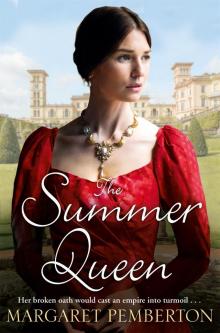 The Summer Queen
The Summer Queen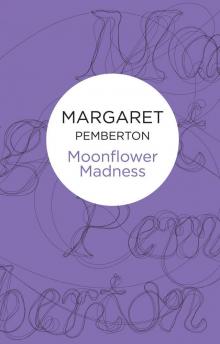 Moonflower Madness
Moonflower Madness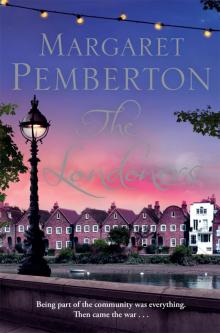 The Londoners
The Londoners The Flower Garden
The Flower Garden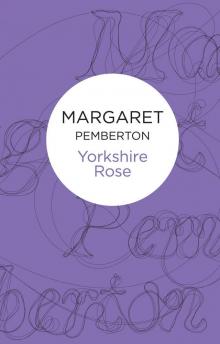 Yorkshire Rose
Yorkshire Rose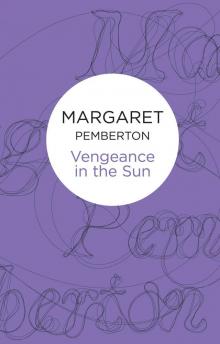 Vengeance in the Sun
Vengeance in the Sun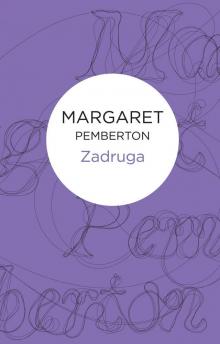 Zadruga
Zadruga Beneath the Cypress Tree
Beneath the Cypress Tree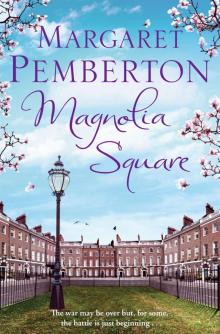 Magnolia Square
Magnolia Square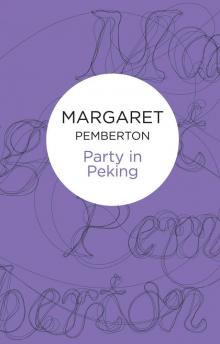 Party in Peking
Party in Peking Lion of Languedoc
Lion of Languedoc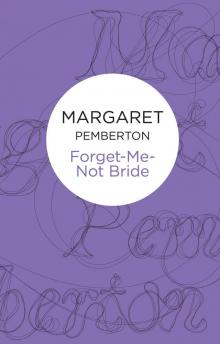 Forget-Me-Not Bride
Forget-Me-Not Bride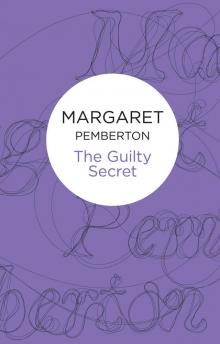 The Guilty Secret
The Guilty Secret Rendezvous With Danger
Rendezvous With Danger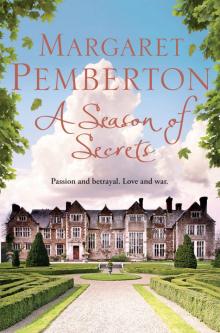 A Season of Secrets
A Season of Secrets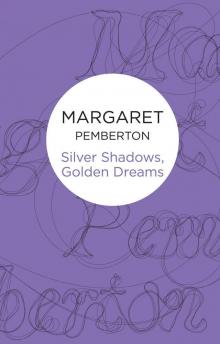 Silver Shadows, Golden Dreams
Silver Shadows, Golden Dreams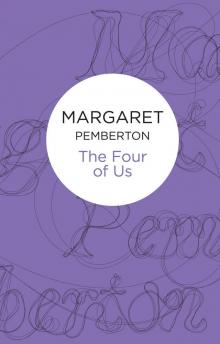 The Four of Us
The Four of Us Devil's Palace
Devil's Palace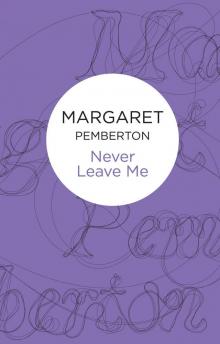 Never Leave Me
Never Leave Me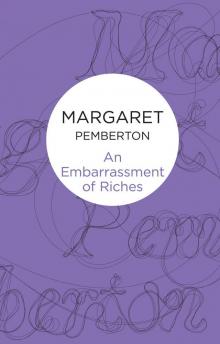 An Embarrassment of Riches
An Embarrassment of Riches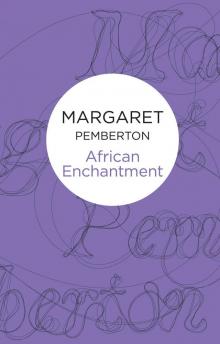 African Enchantment
African Enchantment White Christmas in Saigon
White Christmas in Saigon Coronation Summer
Coronation Summer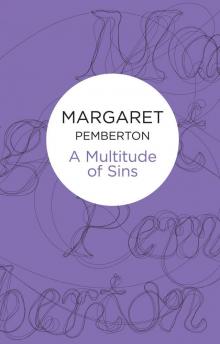 A Multitude of Sins
A Multitude of Sins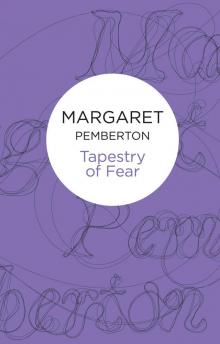 Tapestry of Fear
Tapestry of Fear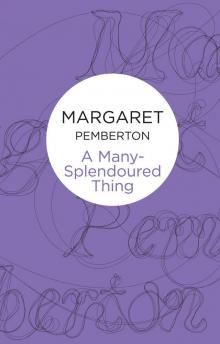 A Many-Splendoured Thing
A Many-Splendoured Thing